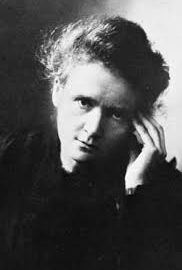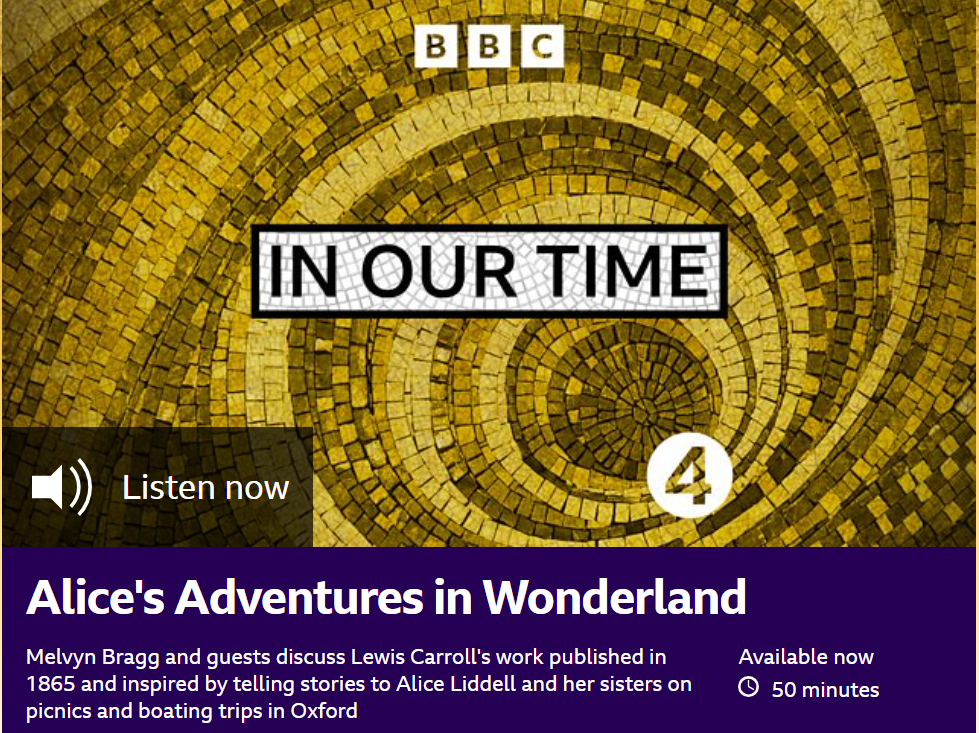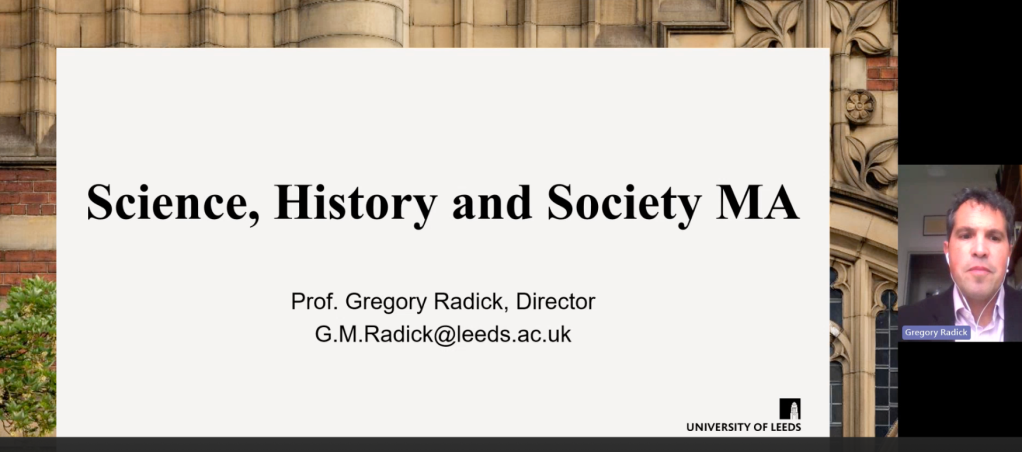Seminars are on Wednesdays, 3.15pm-5pm (apart from 24 April, which has an earlier start). Some are in-person — these are all in Botany House room 1.03 unless otherwise stated. (There is a campus map here.) Others are on Zoom; a link will appear next to the seminar listing below at least a day or so in advance. No hybrid seminars at the moment, sorry. We will revisit this if and when we get better camera/microphone kit. All welcome!
31 January, NOW HYBRID! Martin Hewitt (Visiting Professor, English, University of Leeds)
This is now hybrid due to the train strike, but Martin will be here in person so please physically come along if you can! Zoom link here.
Revisiting the ‘Darwinian Revolution’ one more time
Despite the frustrations and fatigue of historians of science, the sense that there was a ‘Darwinian Revolution’ refuses to die, not least in broader cultural and intellectual history. Sidestepping the definitional semantics of both terms, I would like to suggest that the critical issue is not whether there was an evolutionary transformation of Victorian culture in the 50 years after the publication of On the Origin of Species in 1859 (there clearly was), but what sort of revolution it was. Drawing on the testimonies of more than 2000 individuals, this paper contends that no answer to this question is possible without attention to the role of generational difference. It argues that the textures both of evolutionary science and evolution in the wider culture were constituted by the interactions of different generational voices. The responses of mid Victorians differed from those of high Victorians; and those of Edwardians differed from those of late Victorians. If Darwinian influence spread quickly, Darwinian belief progressed less rapidly. There was no rapid general adoption of evolutionary (and still less ‘Darwinian’) ideas in the 1860s and 1870s. Generational attitudes were remarkably persistent. Evolution gradually became orthodoxy, with far-reaching consequences, but this was achieved as much by demographic churn as by conversion, and the place of Darwin in this shift continued to layered by age. As such, the ‘Darwinian Revolution’ has much to tell us about the significance of generations in Victorian Britain, and indeed about the dynamics of historical change and the dangers of unitary historical narratives.
14 February, ZOOM ONLY: Elizabeth Hoiem (Information Sciences, Illinois)
Zoom link: http://tinyurl.com/Hoiem-seminar
The Education of Things: How 18th/19thC Children’s Books and Toys Taught Science, Manufacturing, and Economics
With the decline of classical learning and the rise of manufacturing in Britain, skills such as tinkering, observation, and experimentation became essential new literacies in an industrial economy. Hoiem argues that children’s books and toys integrated science, manufacturing, and economics into vernacular reading lessons, instructing children simultaneously in reading books and reading the material world. The origins of children’s literature publishing during this period reflect these important socio-economic changes. As learning strategies traditionally used to train youth in artisan workshops were incorporated into nurseries and classrooms for wealthier children of leisure, educators framed these activities as “play” to offer a socially acceptable alternative to learning practical science through work. As work was repositioned as play, wealthy children were encouraged to do tasks in the classroom that poor children performed for wages, while working-class children honed skills that would be crucial to their social advancement as adults. Repositioning the history of children’s literature and material culture in relation to industrialization, Hoiem explores the class politics inherent in playful pedagogies in popular science writing.
28 February, IN PERSON: James Wilsdon (STS, UCL)
Are we all metascientists now? Adventures in the commons & borderlands of research on research
Since 2000, global investment in research and development (R&D) has tripled—to around US $2.5 trillion a year. This extra funding has been accompanied by inflated aspirations and sharpened accountabilities to government, business, citizens and society. The resulting tensions and opportunities have spurred an expansion of research on research—known also as meta-research, metascience or the science of science—which has grown in volume, visibility and intensity. These domains are diverse, and draw on a blend of old and new disciplinary and methodological approaches. From different starting points, they aim to better understand research systems; to ensure that R&D resources are invested strategically and effectively; and to underpin improvements to the ways that funding is allocated, results are disseminated and outcomes are measured and evaluated. One recent initiative in this space has been the Research on Research Institute (RoRI), founded in Europe in 2019 by a group of research funders and meta-researchers, with a mission to accelerate transformative research on research systems, cultures and decision-making. In this talk, drawing on the work of RoRI, and my own undisciplined 20-year journey through the ‘commons and borderlands’ of research on research, I will pose a few questions about the future of these fields. Blending the personal, the political and the institutional, I will poke at the foundations of meta-research; reflect on what’s old, what’s new, and what’s borrowed from elsewhere; ask how one institutionalises an endeavour which is inherently transdisciplinary within structures which (for all their rhetorical nods elsewhere) remain in essence siloed and monodisciplinary. And at a time when so much is up for grabs in the governance and design of the UK’s research system—from reforms to the REF, to the consolidation of UKRI and emergence of ARIA— I will end by offering a few tentative thoughts on the metascientific possibilities of the present moment.
13 March, IN PERSON: Ana-Maria Cretu & Karim Thebault (Philosophy, Bristol)
Stars and Supernovae: Stable Real Patterns in Astrophysics
Since Dennett’s 1991 ‘Real Patterns’, the status of real patterns has been the subject of ongoing controversy (Layman and Ross, 2017; Wallace, 2011; Suñé and Martínez, 2021; Seifert, 2022). Most significantly for our purposes, it remains to be seen whether or not real patterns should be understood to be stable under theory change. We draw on two case studies in the history of astrophysics to show that real patterns can be understood as stable empirical phenomena under theory change. In particular, with reference to the early classifications of stars and supernovae, we clarify the epistemology of authentication, classification, and particularisation of real patterns. We argue that when theories are developed and change, they can share stable empirical phenomena qua real patterns, despite fundamental differences in their core theoretical posits.
24 April, ZOOM: Kate Lynch (Philosophy, Melbourne), 1.15pm-3pm
Zoom meeting ID: 861 1187 4377
Passcode: Hps2324!
How Values Influence Cause of Death Attribution
Causes of death, as documented on a death certificate, serve a variety of purposes: To inform loved ones about conditions that could run in the family, to aid the grieving process, to help hospitals identify clusters of cases related to patient safety concerns, and to compile national and international mortality statistics, which are used to inform the allocation of health resources, public health initiatives, and research priorities. While this wide range of purposes speaks to the importance of recording causes of death, the variety of purposes this data serves comes with a cost.
It is increasingly recognised that non-epistemic values play a role in science, and the collection of mortality data is no exception. Because documenting causes of death serves various purposes, a variety of values influence which causes are documented and compiled. Amongst this variety are values that can be in tension with one another. In this talk I will illustrate how this becomes particularly evident in cases of causal complexity and uncertainty. The potential for value conflict, along with the context dependency of values involved, has the potential to reduce the consistency of mortality data, undermining its utility as a valuable public health resource.
8 May, HYBRID: Elisabeth Yang (HPS, Leeds)
Zoom link (Meeting ID: 820 8137 6965 / Passcode: 3FnH!A)
Moved by feelings, not by doctrines’–Moral and Religious Epistemology of Infants in Early C19 British and American Child Health Discourses
According to British physician, Andrew Combe (1797-1847), in his seminal work, The Moral and Physiological Management of Infancy (1840), infants indeed had a sense of religion. For this child health expert, ‘true religion’ addressed itself to our ‘highest and purest emotions’ and this would be no more successfully achieved than in infancy [Andrew Combe, The Moral and Physiological Management of Infancy 260-261]. Religion of the heart or affections ought to be taught at infancy, in Combe’s view, consisting not in the intellectual or rational adherence to creeds and dogmas but rather in cultivating the emotions and regulating the moral agency of infants. Emotions figure prominently within the pages of child health and pedagogical texts, such as childrearing medical advice manuals, infant school manuals, primers medical treatises, hymnals, literature, and poetry written for ‘infant minds’. An analysis of infant health and medical advice literature authored and published in nineteenth-century America and Britain reveals experts’ strong emphasis on emotions and the metaphysical beliefs of infants in promoting the moral, spiritual, and intellectual health of infants. Through an analysis of prominent childrearing advice literature that physicians promulgated in Britain and America, I argue that medical, scientific, and childrearing experts relied on particular beliefs and assumptions concerning the nature and epistemology of infants as evidenced in their pedagogical, medical, and scientific literature. Childrearing advice literature, in both pedagogical and medical contexts, of C19 America and Britain, as it concerns infants and infancy, offers a view into the metaphysical and epistemological frameworks that undergird experts’ perspectives, attitudes, and subsequent treatment of infants and infancy which they aimed to embed in the public consciousness of Victorian society.



